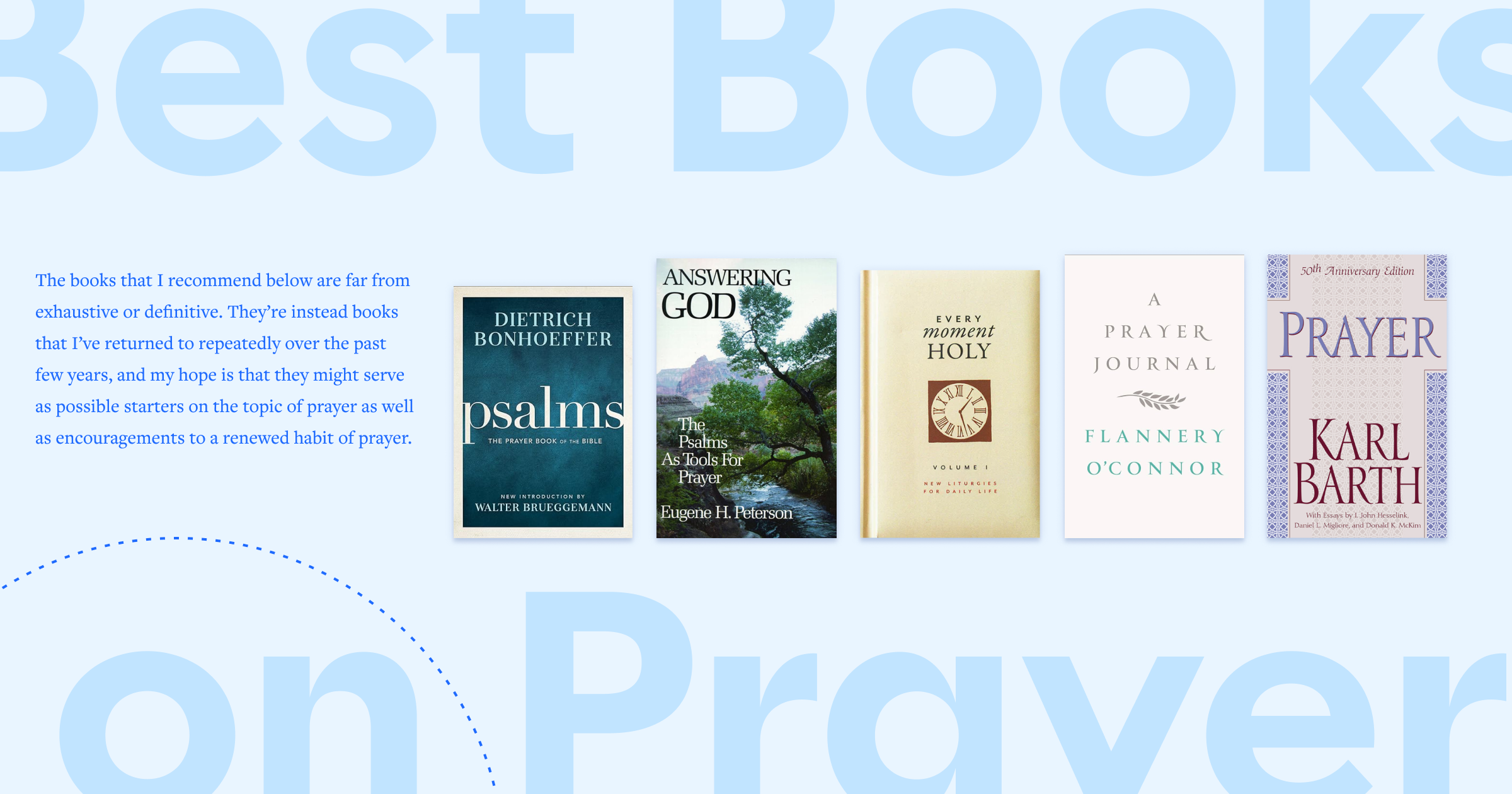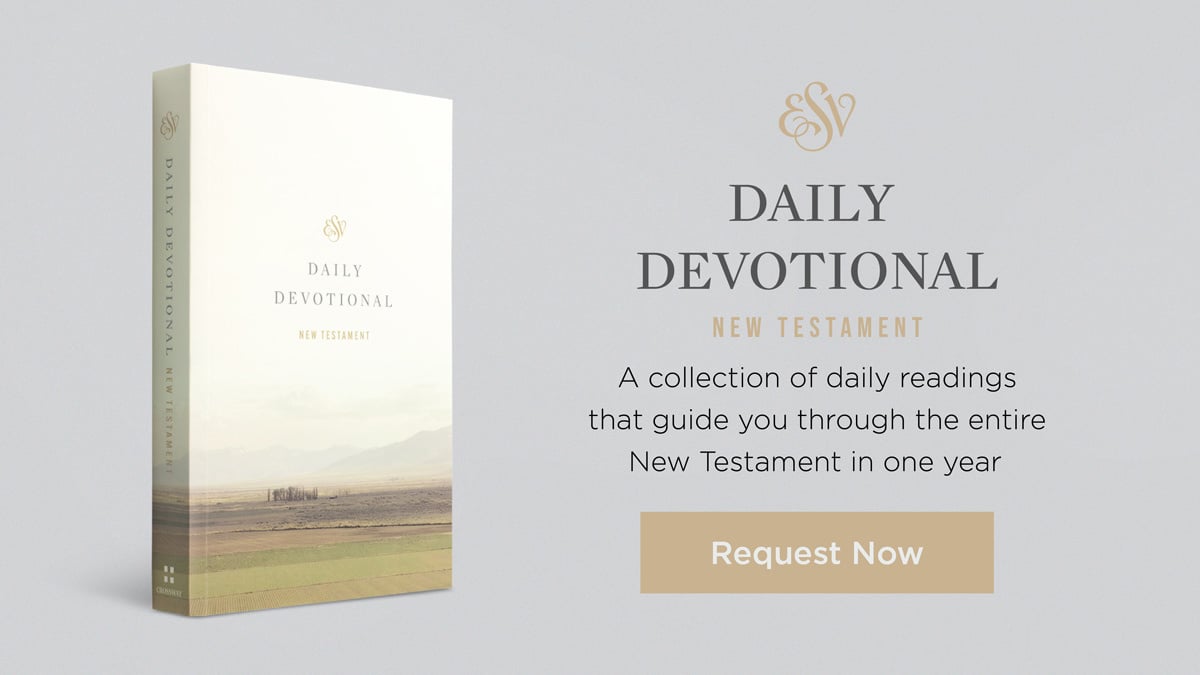A Pattern of Praise
We should remind ourselves of the good things God has done for us. The psalmist of Psalm 103 focuses on five main blessings.
Bless the Lord, O my soul,
and forget not all his benefits,
who forgives all your iniquity,
who heals all your diseases,
who redeems your life from the pit,
who crowns you with steadfast love and mercy,
who satisfies you with good
so that your youth is renewed like the eagle’s.
—Psalm 103:2–5
First, God “forgives” all your sins. This is the greatest blessing. Without forgiveness, we can’t experience the rest of God’s goodness. Our sin has separated us from God, and he is rightly angry; we deserve his wrath. But if you are a Christian, he has forgiven you in Christ.
Christ identified with his people and took our sin on himself. He suffered in our place as a substitute to remove our guilt and shame, pay the penalty we deserved, and restore us to God. This is how the sinless Christ can praise God for forgiveness. As Augustine said, the head speaks for the body when confessing sin in the Psalms.1
Second, God “heals all your diseases” (Ps. 103:3b). He restores physically, emotionally, mentally, and spiritually. He gives his shalom, complete wellbeing. This immediately brings up a question because many of us have said good-bye to loved ones for whom we prayed. If God heals all our diseases, why were theirs not healed?
The Psalms
James A. Johnston
In this commentary on Psalms 42–106, readers find encouragement and inspiration as they encounter the psalmists’ passionate pursuit of God. This volume is part of the Preaching the Word series.
Sometimes God does heal in this life. When he does, we recover and wait for the next disease. I was diagnosed with colon cancer in 2020. The surgery was successful, and my scans have been consistently clear. We praise God for this healing, but it was temporary. Eventually I will die from cancer or something else.
When we pray for God to heal a fellow Christian, sometimes he answers our prayer better than we asked. We merely wanted physical healing for that person to continue life in this fallen world. God answers by bringing them Home to give them full health in glorified bodies that can no longer get sick or die. He heals partially today and completely in the life to come.
Third, if you’re a Christian, God “redeems your life from the pit” (Ps. 103:4a). The picture here could be of a slave bought out of bondage; God has indeed set us free from slavery to sin. “The pit” could also mean death. This is what it meant for Christ. God saved him from death. “For you will not abandon my soul to Sheol, or let your holy one see corruption” (Ps. 16:10). And again Christ says, “For great is your steadfast love toward me; you have delivered my soul from the depths of Sheol” (Ps. 86:13).
God can only truly satisfy us by giving us himself.
If you belong to Christ, God redeemed your life with Christ. Death is not the end; you’ve been brought from the pit.
Fourth, God “crowns you with steadfast love and mercy” (Ps. 103:4). He doesn’t just set us free and tell us to fend for ourselves. He goes over the top and places crowns on our heads. The Apostle Paul beautifully described God’s kindness:
ButGod, being rich in mercy, because of the great love with which he loved us, even when we were dead in our trespasses, made us alive together with Christ—by grace you have been saved—and raised us up with him and seated us with him in the heavenly places in Christ Jesus. —Eph. 2:4–6
Fifth, God “satisfies you with good” (Ps. 103:5). Satisfied is how I feel after Thanksgiving; I don’t need anything else. God fulfills our deepest hunger and longings. He says, “Open your mouth wide, and I will fill it” (Ps. 81:10). He is not stingy and cheap with his people. “He would feed you with the finest of the wheat, and with honey from the rock I would satisfy you” (Ps. 81:16).
Tragically, though God made these promises in Psalm 81, Israel would not listen and look to God’s generous goodness (Ps. 103:11–13). We do the same thing by looking for fulfillment and joy outside of God and his will. We think we know what is best. We’re like a man who reads the owner’s manual for his car. It says to use a certain weight of oil, but he knows better. So he pours in the wrong oil and ruins his engine. Christ looked to God and his will for every blessing and for full satisfaction (Ps. 84:11). We imitate him and follow his heart.
God can only truly satisfy us by giving us himself. He is the greatest, most compelling, fascinating, fulfilling, absorbing, delightful being in the universe. Christ says, “In your presence there is fullness of joy; at your right hand are pleasures forevermore” (Ps. 16:11).
If God gave us abundant meals but not himself, we would not be satisfied. If he gave us the Andromeda Galaxy but not himself, we would not be satisfied. If he gave us every blessing in the world but withheld himself, we would have nothing. God gives us himself. There is nothing more we could ask for.
Talk to yourself. Remind yourself of what God has done. Call yourself to praise.
This article is adapted from The Psalms: Rejoice, the Lord Is King (Volume 2, Psalms 42 to 106) by James A. Johnston.

James Johnston (PhD, Trinity Evangelical Divinity School) is senior pastor of Camelback Bible Church in Paradise Valley, Arizona. He has led workshops on expository preaching for over fifteen years and is an instructor for the Charles Simeon Trust. He and his wife, Lisa, have four children.
Related Articles
4 Psalms You Didn’t Realize Point to Christ
July 08, 2024Again and again I have seen a psalm come into focus when I relate it to Christ, similar to a fuzzy scene through a camera viewfinder coming into sharp focus when the lens is properly adjusted.
10 Things You Should Know about the Psalms
Bruce K. Waltke, Fred G. Zaspel
August 12, 2023Throughout the history of the church, Psalms has been among the first books of the Bible translated and the most commonly read and memorized.
How (and How Not) to Read the Psalms
Bruce K. Waltke, Fred G. Zaspel
June 20, 2023Although we all have derived spiritual benefit from the Psalms—an ancient collection of poems—on many levels, there are ways to read the Psalter that are more beneficial than others.
The Psalms Are Both by and about the King
Bruce K. Waltke, Fred G. Zaspel
June 24, 2023Fundamentally, the Psalms are both by and about the king. The Psalter can be thought of as a royal hymnbook, and its individual psalms have the house of David as its subject matter and point of reference.
Crossway is a not-for-profit Christian ministry that exists solely for the purpose of proclaiming the gospel through publishing gospel-centered, Bible-centered content. Learn more or donate today at crossway.org/about.











 English (US) ·
English (US) ·